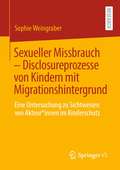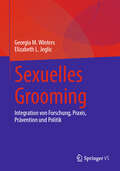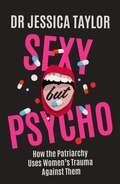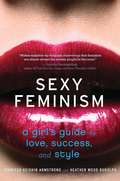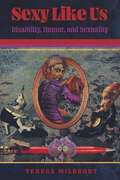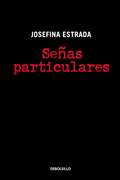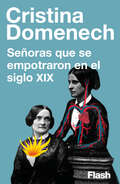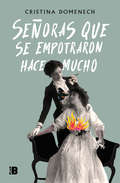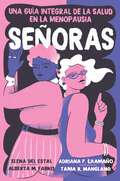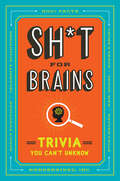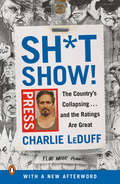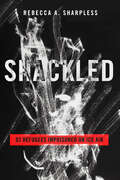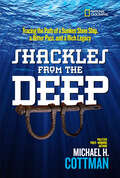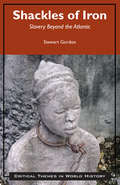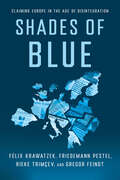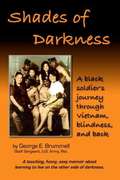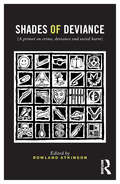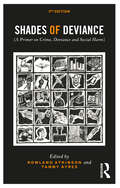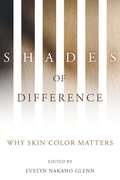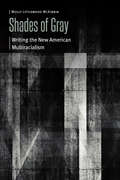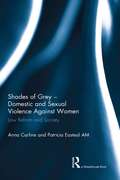- Table View
- List View
Sexueller Missbrauch – Disclosureprozesse von Kindern mit Migrationshintergrund: Eine Untersuchung zu Sichtweisen von Akteur*innen im Kinderschutz
by Sophie WeingraberIn dem vorliegenden Buch wird erstmalig im Rahmen einer qualitativen Untersuchung im deutschsprachigen Raum anhand problemzentrierter Interviews untersucht, welche Erfahrungen Akteur*innen des Kinderschutzes mit Disclosureprozessen betroffener Kinder mit Migrationshintergrund haben und inwiefern dabei städtische und ländliche Räume eine Rolle spielen. Die Daten wurden mittels qualitativer Inhaltsanalyse nach Mayring (2015) ausgewertet und die Ergebnisse aufgrund des gegenwärtigen Anspruchs einer systemischen Betrachtung von Disclosureprozessen in das ökosystemische Entwicklungsmodell nach Bronfenbrenner (1981) integriert. Influenzierende Faktoren auf Disclosureprozesse lassen sich in allen Systemen (Mikro-, Meso-, Exo- und Makrosystem) benennen, wobei insbesondere hervorgehoben werden kann, dass im Feld handelnde Akteur*innen diese macht- und dominanzkritisch reflektieren müssen. Darüber hinaus besteht vor allem die Notwendigkeit, das Exosystem, sprich das System, an dem betroffene Kinder nicht direkt beteiligt sind, aber davon beeinflusst werden (z.B. die Interkulturelle Öffnung von Einrichtungen), näher zu betrachten.
Sexuelles Grooming: Integration von Forschung, Praxis, Prävention und Politik
by Elizabeth L. Jeglic Georgia M. WintersDieses Buch bietet einen ausführlichen Überblick über den aktuellen Forschungsstand zum Thema Sexual Grooming. Es untersucht den Prozess, durch den eine Person, die eine sexuelle Straftat begehen will, ein potenzielles Opfer geschickt in Situationen manipuliert, in denen der Missbrauch leichter begangen werden kann, während gleichzeitig die Offenlegung und Entdeckung verhindert wird. Dieser Band befasst sich mit diesem wenig erforschten Phänomen und untersucht umfassend, was derzeit über dieses Konstrukt bekannt ist. Es bietet eine gründliche Einführung in die Literatur über sexuelles Grooming, wobei der Schwerpunkt auf der Geschichte des Begriffs liegt und darauf, wie sexuelle Grooming-Strategien durch öffentlichkeitswirksame Fälle und solche in Organisationen, die Kinder betreuen (z. B. katholische Kirche, Boy Scouts of America), öffentlich bekannt geworden sind. Das Buch gibt einen Überblick über die verschiedenen vorgeschlagenen Modelle des sexuellen Groomings - einschließlich des Sexual Grooming Model (SGM) -, in denen die übergreifenden Schritte oder Phasen des Prozesses beschrieben werden. Es diskutiert Versuche, das Konstrukt des sexuellen Groomings zu definieren, und befasst sich mit den möglichen Folgen des sexuellen Groomings, wobei der Schwerpunkt darauf liegt, wie Opfer, Familien und Gemeinden im Allgemeinen betroffen sein können. Zu den wichtigsten Themenbereichen gehören: Einzigartige Kontexte und Facetten, in denen sexuelles Grooming-Verhalten beobachtet wurde, einschließlich Online-Grooming, persönliches/Self-Grooming, familiäres Grooming, institutionelles Grooming und Grooming-Verhalten von weiblichen Personen. Die Art und Weise, in der sich sexuelle Grooming-Strategien in Fällen von Sexhandel und sexuellem Missbrauch von Erwachsenen manifestieren können. Bewertung und Behandlung von sexuellem Grooming sowie Präventionsstrategien. Durchführung von Grooming-Forschungen als Grundlage für Strafverfolgungsmaßnahmen und gerichtliche Entscheidungen. Die Ausarbeitung und Verabschiedung von Gesetzen und Strategien zur Verhinderung von sexuellem Grooming. Child Sexual Grooming ist ein unverzichtbares Hilfsmittel für Forscher, Professoren, Studenten, Kliniker, Psychotherapeuten, Juristen, politische Entscheidungsträger, Strafverfolgungsbehörden und verwandte Berufsgruppen in den Bereichen Entwicklungspsychologie, Kinder- und Jugendpsychologie, Sozialarbeit, öffentliches Gesundheitswesen, Kriminologie/Strafjustiz, forensische Psychologie sowie Verhaltenstherapie und Rehabilitation.
Sexy Bodies: The Strange Carnalities of Feminism
by Elizabeth Grosz Elspeth ProbynAre bodies sexy? How? In what sorts of ways? Sexy Bodies investigates the production of sexual bodies and sexual practices, of sexualities which are dyke, bi, transracial, and even hetero. It celebrates lesbian and queer sexualities but also explores what runs underneath and within all sexualities, discovering what is fundamentally weird and strange about all bodies, all carnalities. Looking at a pleasurable variety of cultural forms and texts, the contributors consider the particular charms of girls and horses, from National Velvet to Marnie; discuss figures of the lesbian body from vampires to tribades to tomboys; uncover 'virtual' lesbians in the fiction of Jeanette Winterson; track desire in the music of legendary Blues singers; and investigate the ever-scrutinised and celebrated body of Elizabeth Taylor. The collection includes two important pieces of fiction by Mary Fallon and Nicole Brossard. Sexy Bodies makes new connections between and amongst bodies, cruising the borders of the obscene, the pleasurable, the desirable and the hitherto unspoken rethinking sexuality anew as deeply and strangely sexy.
Sexy But Psycho: How the Patriarchy Uses Women’s Trauma Against Them
by Dr Jessica TaylorThe new book from the bestselling author of Why Women Are Blamed for EverythingAngry, opinionated, mouthy, aggressive, hysterical, mad, disordered, crazy, psycho, delusional, borderline, hormonal . . . Women have long been pathologized, locked up and medicated for not conforming to whichever norms or stereotypes are expected of them in that time and space. Sexy But Psycho is a challenging and uncomfortable book which seeks to explore the way professionals and society at large pathologize and sexualise women and girls. Utilising decades of research, real case studies and new data from her own work, Dr Taylor's book will critically analyse the way we label women with personality disorders. Why are women and girls pathologized for being angry about oppression and abuse? How have so many women been duped into believing that they are mentally ill, for having normal and natural reactions to their experiences? Sexy But Psycho argues that there is a specific purpose to convincing women and girls that they are mentally ill, as the world avoids addressing violence against women and their centuries of ignored trauma.
Sexy But Psycho: How the Patriarchy Uses Women’s Trauma Against Them
by Dr Jessica TaylorTHE SUNDAY TIMES BESTSELLERAngry, opinionated, mouthy, aggressive, hysterical, mad, disordered, crazy, psycho, delusional, borderline, hormonal . . . Women have long been pathologized, locked up and medicated for not conforming to whichever norms or stereotypes are expected of them in that time and space. Sexy But Psycho is a challenging and uncomfortable book which seeks to explore the way professionals and society at large pathologize and sexualise women and girls. Utilising decades of research, real case studies and new data from her own work, Dr Taylor's book will critically analyse the way we label women with personality disorders. Why are women and girls pathologized for being angry about oppression and abuse? How have so many women been duped into believing that they are mentally ill, for having normal and natural reactions to their experiences? Sexy But Psycho argues that there is a specific purpose to convincing women and girls that they are mentally ill, as the world avoids addressing violence against women and their centuries of ignored trauma.
Sexy Feminism
by Jennifer Keishin Armstrong Heather Wood Rudúlph"We live in a society where sex is used against women as much as it's used by women. Sexy Feminism calls foul on that (and other) double standards--and makes manifest my frequent observation that feminists are almost always the sexiest people in the room." --Jennifer Baumgardner, author of F'em!: Goo Goo, Gaga, and Some Thoughts on BallsNot your mother's feminism! A humor-filled action plan for an accessible, cool, and, yes, even sexy brand of 21st-century feminismFeminism can still seem like an abstract idea that is hard to incorporate into our hectic, modern lives, but Jennifer Keishin Armstrong and Heather Wood Rudúlph show how the everyday things really matter. In an age when concern-trolling, slut-shaming, and body-snarking are blogosphere bywords, when reproductive rights are back under political attack, and when women are constantly pressured to "have it all," feminism is more relevant than ever. For many young women the radicalism of the Second Wave is unappealing, and the "do me" and "lipstick" feminism of the Third Wave feels out of date. Enter Sexy Feminism. It's an inclusive, approachable kind of feminism--miniskirts, lip gloss, and waxing permitted. Covering a range of topics from body issues and workplace gender politics to fashion, dating, and sex, Sexy Feminism is full of advice, resources, and pop culture references that will help shape what being a feminist can look like for you."Genius! Sexy Feminism is a delicious primer for budding feminists (and the feminist-curious), as well as a sigh of relief for long-term third-wave feminists who long to be understood and are tired of explaining our beliefs. Jennifer and Heather do an outrageously good service to us all by bringing feminism into its sexy, confident maturity." --Katie Goodman, feminist comedian and actress
Sexy Like Us: Disability, Humor, and Sexuality
by Teresa MilbrodtSexy Like Us: Disability, Humor, and Sexuality takes a humorous, intimate approach to disability through the stories, jokes, performances, and other creative expressions of people with disabilities. Author Teresa Milbrodt explores why individuals can laugh at their leglessness, find stoma bags sexual, discover intimacy in scars, and flaunt their fragility in ways both hilarious and serious. Their creative and comic acts crash, collide, and collaborate with perceptions of disability in literature and dominant culture, allowing people with disabilities to shape political disability identity and disability pride, call attention to social inequalities, and poke back at ableist cultural norms. This book also discusses how the ambivalent nature of comedy has led to debates within disability communities about when it is acceptable to joke, who has permission to joke, and which jokes should be used inside and outside a community’s inner circle. Joking may be difficult when considering aspects of disability that involve physical or emotional pain and struggles to adapt to new forms of embodiment. At the same time, people with disabilities can use humor to expand the definitions of disability and sexuality. They can help others with disabilities assert themselves as sexy and sexual. And they can question social norms and stigmas around bodies in ways that open up journeys of being, not just for individuals who consider themselves disabled, but for all people.
Señas particulares
by Josefina EstradaOBRA GANADORA DEL PRIMER CONCURSO DE CRÓNICA SALVADOR NOVO, 2002 OBRA GANADORA DEL PRIMER CONCURSO DE CRÓNICA SALVADOR NOVO, 2002 ¿Sabe quiénes van a la fosa común y por qué? ¿Sabe dónde está? ¿Conoce suficientemente el cuerpo de sus seres queridos como para identificarlos en caso de que fallecieran en circunstancias irregulares? ¿Tiene alguna idea de cómo proceden los médicos forenses, qué buscan y en qué se basan para emitir sus dictámenes? Poca gente se atreve a pensar qué sucede con los cadáveres de aquellos que mueren violenta o sospechosamente. Y menos entra en las salas forenses donde los médicos analizan y diseccionan restos humanos a fin de conocer las causas o condiciones del fallecimiento. Josefina Estrada halló un mundo paralelo al de los Ministerios Públicos y hospitales; ahí trabajan policías y periodistas, investigadores y enterradores, técnicos y doctores especialistas en la más diversas ramas de la medicina forense. Todos ellos entran en acción cuando un ser humano muere en condiciones no claras, con violencia o por mano propia. Señas particulares nos lleva de la mano por los laberintos que se inician en la nota roja y que rara vez desembocan en un final feliz. No obstante, el lado positivo de esta experiencia radica en la súbita revaloración que hacemos de la vida, la familia y el amor después de volver a la superficie.
Señoras que se empotraron en el siglo XIX
by Cristina Domenech¿Dónde están las lesbianas en el siglo XIX? Este flash ensayo forma parte del celebrado libro Señoras que se empotraron hace mucho, en el que se presenta a mujeres que, de un modo u otro, desafiaron las convenciones sociales a través de expresar abiertamente su sexualidad. En este caso, hallamos una selección de algunas de las señoras que amaron a otras mujeres en el siglo XIX, entre las cuales podríamos destacar a Anne Lister y sus diarios codificados, a la actriz Charlotte Cushman o a la anarquista Marie Equi, que luchó por los derechos de obreros, mujeres y el colectivo LGTBQ. Así pues, a través de esta brillante recopilación de señoras que se empotraron, queda claro que, tal como la misma autora afirma, «la historia es mucho menos heterosexual de lo que nos pensamos».
Señoras que se empotraron hace mucho
by Cristina Domenech¿Dónde están las lesbianas en la historia? Mujeres que se rebelaron contra el matrimonio y rompieron las reglas de etiqueta. Rebeldes, genias, decadentes, artistas... Señoras que, pese a todas las dificultades de su tiempo, se atrevieron a expresar su sexualidad y desafiar a su época. Este libro, que contempla desde el siglo XVII hasta el siglo XX, explora la historia pública y privada de estas fascinantes mujeres que amaban a otras -Anne Seymour Damer, Anne Lister o Josephine Baker, entre tantas otras-, para visibilizar y sacar a la luz una realidad que nunca debería haber sido secreta.
Señoras: Una guía integral de la salud en la menopausia
by Elena Del Estal Perez Alberta Maria Fabris Adriana Fernandez Caamaño Tania Rodriguez Manglano«Un libro eminentemente práctico y útil para transitar con elegancia por la temida menopausia». —Anna Freixas, autora bestseller de Nuestra menopausia¿Qué hacer con los sofocos? ¿Es normal que vuelva la regla después de tanto tiempo (¡y justo el día que usas pantalones blancos!)? ¿Se puede prevenir la osteoporosis? ¿Adónde se fue el deseo?Para muchas mujeres, la menopausia es un terreno incierto, más cercano a una enfermedad o una tortura que una etapa vital digna de ser disfrutada. Sin embargo, cuando disponemos de las herramientas y la orientación adecuadas, es posible transformar radicalmente esta experiencia.Señoras es una guía práctica y compasiva, escrita por cuatro profesionales de la salud con una perspectiva feminista, donde encontrarás todo lo que necesitas saber y escuchar sobre la menopausia y el climaterio. Desde explicaciones científicas y rutinas de ejercicios ilustradas, hasta reflexiones en torno a los prejuicios médicos y sociales que invisibilizan los «asuntos de mujeres».Sin importar si ya estás transitando o no este camino, estas páginas serán tus mejores aliadas para vivir una madurez plena, libre de miedos y prejuicios. Como una verdadera señora. -----A comprehensive guide to celebrate and embrace maturity without fear or prejudice. What to do about hot flashes? Is it normal for your period to come back after so long (and on the day you’re wearing white pants, no less!)? Can osteoporosis be prevented? Where did your sex drive go?For many women, menopause is an uncertain terrain, more like an illness or torture than a vital stage worth enjoying. However, with the right tools and guidance, this experience can be radically transformed.Señoras is a practical and compassionate guide, written by four health professionals from a feminist perspective, where you’ll find everything you need to know and hear about menopause and the climacteric. From scientific explanations and illustrated exercise routines to reflections on the medical and social biases that render “women’s issues” invisible.Whether or not you’re already on this journey, these pages will be your best allies in living a full maturity, free from fear and prejudice. Like a true señora.
Sh!thouse: A Memoir
by Lauren Dollie DukeSh!thouse: A Memoir is a story of brutal girlhood. Lauren was seven when she helped her step-father boost rum bottles from the local liquor store. The next year, her biological father took her to a hotel room and shot up heroin in the bathroom. The next day he robbed a bank with a finger gun! When he was released from prison, he moved into Lauren’s basement. They spent the weekends smoking cartons of cigarettes, diving into dumpsters and swindling used cars. Lauren’s upbringing provided her with only one lens through which she saw herself – shame. And that shame overflowed into every aspect of her life. In this compassionate and gritty real-life fairytale the author, Lauren Dollie Duke, shows how it’s possible for good people to do bad things and what it takes to create peace with where you come from in order to find true happiness. This raw and humorous account about trauma, transcendence and resilience challenges the binary of good vs. evil. It lays out the evolution of shame psychology and intergenerational trauma seeking to answer the question of how we unravel ourselves from the history and patterns of our families. Sh!thouse will make you want to investigate your own historical patterns, examine all of your relationships, and forgive everyone, including yourself. It’s a tether to our shared humanity which reminds us there is belonging in the world no matter how horrific it was to start. It is a beautifully written map that draws back to the personal root of where sabotaging behavior, shame and limitation is born.
Sh*t for Brains: Trivia You Can't Unknow
by Harebrained IncA compendium of truly outrageous, surprising, and (sometimes) gross facts.Did you know that Big Bird was originally supposed to fly on the doomed Challenger Space Shuttle? Or that smelling your own farts was considered a cure for the bubonic plague? Now those are things you can&’t unlearn. Born out of love for trivia and hatred for boring, bland facts, Sh*t for Brains is the ultimate wild ride of truth—from hilarious pop culture factoids to little-known insights from history, this twisted trivia book will make you laugh, cry, and maybe even cringe. A great gift for tweens, teens, and your bar trivia pals, Sh*t for Brains is not-so-average trivia for not-so-average people.
Sh*tshow!: The Country's Collapsing . . . and the Ratings Are Great
by Charlie LeDuffA daring, firsthand, and utterly-unscripted account of crisis in America, from Ferguson to Flint to Cliven Bundy's ranch to Donald Trump's unstoppable campaign for President--at every turn, Pulitzer-prize winner and bestselling author of Detroit: An American Autopsy, Charlie LeDuff was thereIn the Fall of 2013, long before any sane person had seriously considered the possibility of a Trump presidency, Charlie LeDuff sat in the office of then-Fox News CEO Roger Ailes, and made a simple but prophetic claim: The whole country is bankrupt and on high boil. It’s a shitshow out there. No one in the bubbles of Washington, DC., New York, or Los Angles was talking about it--least of all the media. LeDuff wanted to go to the heart of the country to report what was really going on. Ailes baulked. Could the hard-living and straight-shooting LeDuff be controlled? But, then, perhaps on a whim, he agreed. And so LeDuff set out to record a TV series called, "The Americans," and, along the way, ended up bearing witness to the ever-quickening unraveling of The American Dream.For three years, LeDuff travelled the width and breadth of the country with his team of production irregulars, ending up on the Mexican border crossing the Rio Grande on a yellow rubber kayak alongside undocumented immigrants; in the middle of Ferguson as the city burned; and watching the children of Flint get sick from undrinkable water. Racial, political, social, and economic tensions were escalating by the day. The inexorable effects of technological change and globalization were being felt more and more acutely, at the same time as wages stagnated and the price of housing, education, and healthcare went through the roof. The American people felt defeated and abandoned by their politicians, and those politicians seemed incapable of rising to the occasion. The old way of life was slipping away, replaced only by social media, part-time work, and opioid addiction.Sh*tshow! is that true, tragic, and distinctively American story, told from the parts of the country hurting the most. A soul-baring, irreverent, and iconoclastic writer, LeDuff speaks the language of everyday Americans, and is unafraid of getting his hands dirty. He scrambles the tired-old political, social, and racial categories, taking no sides--or prisoners. Old-school, gonzo-style reporting, this is both a necessary confrontation with the darkest parts of the American psyche and a desperately-needed reminder of the country's best instincts.
Shackled: 92 Refugees Imprisoned on ICE Air
by Rebecca A. SharplessA rare look at the brute-force mechanics of deportation in the United States. In December 2017, U.S. immigration authorities shackled and abused 92 African refugees for two days while attempting to deport them by plane to Somalia. When national media broke the story, government officials lied about what happened. Shackled tells the story of this harrowing failed deportation, the resulting class action litigation, and two men's search for safety in the United States over the course of three long years. Through Abdulahi's and Sa'id's firsthand accounts, immigration lawyer Rebecca A. Sharpless brings to life the harsh consequences of the U.S. deportation system and how racism and anti-Blackness operate within it. Sharpless follows the money that ICE funnels into local jails, private contractors, and charter jets, exposing a sprawling system of immigration enforcement that detains and abuses noncitizens at scale. Woven with the wider context of Abdulahi's and Sa'id's stories, this immigration odyssey reveals disturbing truths about Somalia, asylum, and the U.S. court system. Shackled will galvanize readers—attorneys, activists, policymakers, and scholars alike—to call out and dismantle this brutal infrastructure.
Shackles From the Deep: Tracing the Path of a Sunken Slave Ship, a Bitter Past, and a Rich Legacy
by Michael H. CottmanA pile of lime-encrusted shackles discovered on the seafloor in the remains of a ship called the Henrietta Marie, lands Michael Cottman, a Washington, D.C.-based journalist and avid scuba diver, in the middle of an amazing journey that stretches across three continents, from foundries and tombs in England, to slave ports on the shores of West Africa, to present-day Caribbean plantations. This is more than just the story of one ship – it's the untold story of millions of people taken as captives to the New World. Told from the author's perspective, this book introduces young readers to the wonders of diving, detective work, and discovery, while shedding light on the history of slavery.
Shackles of Iron: Slavery Beyond the Atlantic
by Alfred J. Andrea Stewart Gordon"Gordon's survey of the topic makes it clear that slavery in the Americas can be understood much better if we put it in this larger context, in terms of both time and place. His chapters on East African and Mediterranean slavery are especially valuable, since these were contemporary with so-called Atlantic slavery and can provide students with valid points of comparison, revealing both the similarities and the variable nature of early-modern bondage. The final chapter is especially timely, reminding readers that much of what we think of as enslavement hasn't really gone away, but simply slipped below the radar of the world media. All in all, Gordon makes it clear that, though it has arisen in different guises and at many different times and places, slavery has been and remains deeply rooted in human society. A rewarding introduction for anyone looking to better understand slavery as a world-wide institution." --Robert Davis, The Ohio State University
Shades of Blue: Claiming Europe in the Age of Disintegration
by Félix Krawatzek Friedemann Pestel Rieke Trimcev Gregor FeindtIn Shades of Blue, Félix Krawatzek, Friedemann Pestel, Rieke Trimçev, and Gregor Feindt investigate the political project of "Europe" as it oscillates between the extremes of expectations of an ever-wider integration and fear of disintegration. The authors interrogate and chart the space between these polarities by tracking the many competing conceptions of Europe in European public discourse and relate these meanings to national, regional, and ideological divisions. Based on qualitative discourse analyses of newspaper articles from six European Union member states between 2004 and 2023, Shades of Blue shifts how we think about Europe's integration and disintegration and offers a new perspective on Europeanization. With twelve debates chronicling Europe's past and discussing the implications for Europe's future, these authors uncover how politicians, intellectuals, and journalists negotiate European senses of belonging. Shades of Blue moves beyond the binaries of hope and despair to uncover a more nuanced picture of Europe.
Shades of Darkness: A Black Soldier's Journey Through Vietnam, Blindness, and Back
by George E. BrummellThe last image I ever saw--the instant before my eyes were seared by a landmine explosion in the jungles of Vietnam--is always with me. Many times during the past forty years, I have thought of myself as unlucky. But a soldier I met recently left me wondering. The meeting happened on a visit with a friend and fellow Vietnam veteran to Walter Reed Army Hospital in Washington, D.C., where some of America's wounded warriors from Iraq and Afghanistan were being treated.
Shades of Deviance: A Primer on Crime, Deviance and Social Harm
by Rowland AtkinsonWritten in a unique format, Shades of Deviance is a turbo-driven guide to crime and deviance, offering 56 politically engaged, thought-provoking and accessibly written accounts of a wide range of socially and legally prohibited acts. This book will be essential reading for undergraduate students in the fields of criminology and sociology and those preparing to embark on degree courses in these fields, as well as general readers. Written by field-leading experts from across the globe and designed for those who want a clear and exciting introduction to the complex areas of crime and deviance, this book provides a large number of short overviews of a wide range of social problems, harms and criminal acts. Offering a series of cutting-edge and critical treatments of issues such as war and murder, paedophilia, ecocide, human experimentation, stalking and sexting, this book also gives a guide to further readings and suggestions for other media to develop the reader’s understanding of these issues. Shades of Deviance requires readers to critically reconsider their ideas about what is right and wrong, about what is socially harmful and which problems we should focus our attention on. It also provides careful analysis and reasoned explanation of complex issues in a world in which sensationalist headlines, anxiety and fear about crime permeate our lives - read it to be prepared!
Shades of Deviance: A Primer on Crime, Deviance and Social Harm
by Rowland Atkinson Tammy AyresShades of Deviance is a turbo-driven guide to crime and deviance. It offers politically engaged, thought-provoking and accessibly written accounts of a wide range of socially and legally prohibited acts. This updated and revised edition is designed to be essential reading for general readers, undergraduate students in the fields of criminology and sociology, and those preparing to embark on degree courses in these fields. Written by field-leading experts from across the globe and designed for those who want a clear and exciting introduction to the complex areas of crime and deviance, this book provides short overviews of a wide range of social problems, harms and criminal acts, offering a series of cutting-edge and critical treatments of issues such as war and terrorism, incels and the alt-right, ecocide, trolling, hate crime and chemsex. A guide is also given to further readings and films to develop the reader’s understanding of these issues. This new edition has been fully revised and extended, with new entries on robot sex, protest, child soldiers, online abuse, cybercrime, drug trafficking, gangs and weapon use. Shades of Deviance encourages readers to critically reconsider their ideas about what is right and wrong, about what is socially harmful and which problems we should focus our attention on. It offers careful analysis and reasoned explanation of complex issues in a world in which sensationalist headlines, anxiety and fear about crime permeate our lives. Read it to be prepared for some of the key debates shaping the world to come.
Shades of Difference
by Evelyn Nakano GlennGlenn (ethnic studies and gender and women's studies, U. of California, Berkeley) brings together 14 essays that examine the phenomenon of colorism--the preference for lighter skin and the ranking of individual worth according to skin tone. They investigate the social and cultural significance of skin color in different societies and historical periods in Latin America, Asia, Africa, and North America, as well as connections to racism, class, gender, national identity, capitalism, the media, the beauty industry and skin lightening trade, and how the courts view colorism. Contributors are gender and women's studies, ethnic studies, history, law, sociology, anthropology, and psycholinguistics scholars in the US. Annotation ©2009 Book News, Inc. , Portland, OR (booknews. com)
Shades of Gray: Writing the New American Multiracialism (Borderlands and Transcultural Studies)
by Molly Littlewood McKibbinIn Shades of Gray Molly Littlewood McKibbin offers a social and literary history of multiracialism in the twentieth-century United States. She examines the African American and white racial binary in contemporary multiracial literature to reveal the tensions and struggles of multiracialism in American life through individual consciousness, social perceptions, societal expectations, and subjective struggles with multiracial identity. McKibbin weaves a rich sociohistorical tapestry around the critically acclaimed works of Danzy Senna, Caucasia (1998); Rebecca Walker, Black White and Jewish: Autobiography of a Shifting Self (2001); Emily Raboteau, The Professor’s Daughter (2005); Rachel M. Harper, Brass Ankle Blues (2006); and Heidi Durrow, The Girl Who Fell from the Sky (2010). Taking into account the social history of racial classification and the literary history of depicting mixed race, she argues that these writers are producing new representations of multiracial identity.Shades of Gray examines the current opportunity to define racial identity after the civil rights, black power, and multiracial movements of the late twentieth century changed the sociopolitical climate of the United States and helped revolutionize the racial consciousness of the nation. McKibbin makes the case that twenty-first-century literature is able to represent multiracial identities for the first time in ways that do not adhere to the dichotomous conceptions of race that have, until now, determined how racial identities could be expressed in the United States.
Shades of Grey - Domestic and Sexual Violence Against Women: Law Reform and Society
by Patricia Easteal Anna CarlineArguing that law must be looked at holistically, this book investigates the ‘hidden gender’ of the so-called neutral or objective legal principles that structure the law addressing violence against women. Adopting an explicitly feminist perspective, it investigates how legal responses to violence against women presuppose, maintain and perpetuate a certain context that may not in fact reflect women’s experiences. Carline and Easteal draw upon relevant legislation, case law and secondary studies from a range of territories, including Australia, England and Wales, the United States, Canada and Europe, to contextualize and critique different policy responses. They go on to examine the potential and limits of law, making recommendations for best practice models of policymaking and law reform. Aiming to help improve government, community and legal responses to women who experience violence, Shades of Grey – Domestic and Sexual Violence Against Women: Law Reform and Society will assist law-makers, academics, policymakers and a wider audience in understanding the complexities of violence against women.
Shades of Mao: The Posthumous Cult of the Great Leader
by Geremie Barme"Essays, poems, songs, folkloric anecdotes and photographs celebrating the myth of Mao. ... The editor supplies an insightful, and cohesing introduction". -- Reference & Research Book News"(A) highly entertaining and informative collection of translations of official, admiring, tacky, but sometimes also highly critical writings, and illustrations of objects, all featuring Mao. ... A must-have book for everybody interested in contemporary China, Mao, and his legacy now and in the future". -- China Information
